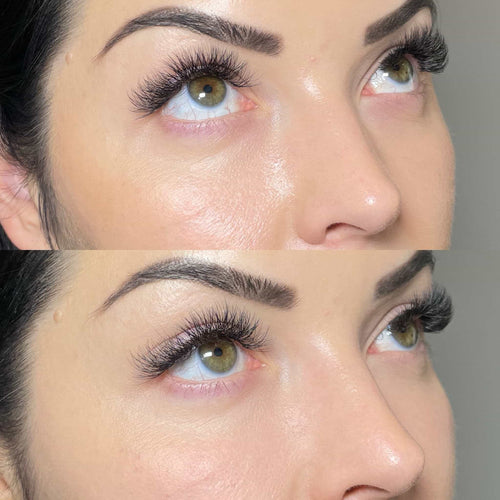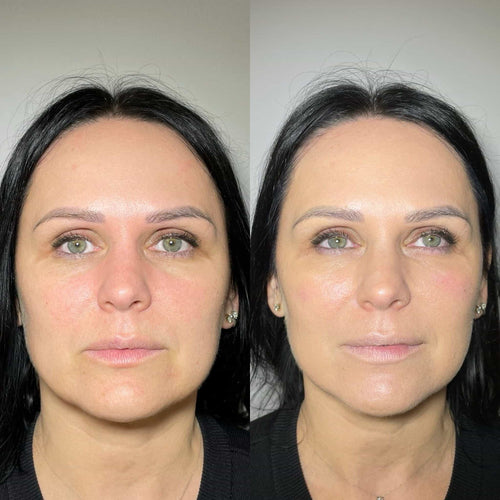Book Your Dermal Filler Appointment with Dr. Laura Geige Today
Average Cost
Factors Influencing Price
Average costs for cosmetic procedures can vary greatly depending on a number of factors. While it’s tempting to simply look at an average price, understanding what influences these prices is crucial for making informed decisions about your healthcare.
In the context of a mini facelift in the UK, the cost can range from around £2,500 to upwards of £6,000. This significant variation stems from several key factors:
**1. Surgeon’s Experience and Reputation:** Surgeons with extensive experience, board certification, and a proven track record often command higher fees due to their expertise and the lower risk associated with their procedures.
**2. Location:** Cosmetic surgery clinics in major cities or affluent areas tend to have higher operating costs, which can translate into higher prices for patients.
**3. Clinic Facilities:** State-of-the-art facilities equipped with advanced technology and comfortable amenities usually come at a premium.
4. Anesthesia Fees: The type of anesthesia used (local, sedation, or general) will impact the overall cost, as each requires different qualifications and expertise from an anesthesiologist.
**5. Surgical Technique:** Different mini facelift techniques exist, and some may require more complex procedures or specialized tools, influencing the price.
**6. Additional Procedures:** Patients often opt for complementary procedures like eyelid surgery or fat grafting alongside their mini facelift, which will add to the total cost.
**7. Post-Operative Care:** The extent and duration of post-operative care provided by the clinic can also vary, affecting the overall price.
It is essential to remember that choosing a qualified surgeon and reputable clinic should prioritize safety and quality over solely focusing on the cheapest option. Consult with several providers, discuss your individual needs and expectations, and obtain detailed cost breakdowns before making a decision.
Regional Variations
Determining the average cost of a mini facelift in the UK requires considering several factors, as pricing can vary significantly based on various elements.
Here’s a breakdown of what influences the cost:
- Surgeon’s Experience and Reputation: Highly experienced and sought-after surgeons often charge higher fees due to their expertise and track record.
- Geographic Location: Surgical costs tend to be higher in major cities like London compared to more rural areas.
- Clinic/Hospital Fees: Different clinics and hospitals have varying operating room and facility charges, which are reflected in the overall price.
- Anesthesia Costs: Anesthesia fees depend on the type of anesthesia used (general or local) and the anesthesiologist’s expertise.
- Implant Costs (If Applicable): If implants are needed as part of the mini facelift, those costs will be added to the total.
- Post-Operative Care: The cost may include follow-up appointments, medication, and compression garments.
Reserve a Dermal Filler Appointment with Dr. Laura Geige Now
Based on these factors, a mini facelift in the UK can range from £3,000 to £8,000 or more.
It’s crucial to obtain consultations with several qualified surgeons to get personalized quotes and discuss your individual needs and budget.
Cost Breakdown
Surgical Fees

Understanding the cost breakdown for a mini facelift in the UK requires examining several factors that contribute to the overall price.
Surgical Fees:
This constitutes the surgeon’s professional fee for performing the procedure. Factors influencing this fee include the surgeon’s experience, expertise, reputation, and location. Surgeons specializing in facial plastic surgery or cosmetic procedures generally charge higher fees than general practitioners.
Anesthesia Costs:
Mini facelifts often involve either local anesthesia with sedation or general anesthesia. The cost of anesthesia depends on the type chosen and the duration of the procedure.
Operating Room Fees:
Hospitals or surgical facilities charge a fee for using their operating room, which includes equipment, supplies, and nursing staff.
Pre-Operative and Post-Operative Care:
These costs encompass consultations, pre-operative tests, medications, dressings, and follow-up appointments. The number of consultations and the complexity of your medical history may affect these costs.
Additional Expenses:
You might incur additional expenses such as compression garments, pain medication, travel to and from the clinic, and potential overnight hospital stay if required.
It’s important to obtain a detailed breakdown of costs from your chosen surgeon or clinic before proceeding with any surgery. This will help you budget effectively and avoid unexpected financial burdens.
Anesthesia Costs
Cost breakdown for a mini facelift in the UK can vary significantly depending on several factors, making it difficult to provide an exact price without a consultation with a qualified plastic surgeon.
However, here’s a general overview of the potential costs involved:
Surgical Fees: This is the largest portion of the overall cost and typically ranges from £2,500 to £6,000. Surgeon experience, reputation, and location all influence this fee.
Anesthesia Costs: The type of anesthesia used (local or general) will determine the cost, which generally falls between £300 and £1,000.
Operating Facility Fees: This covers the cost of using a hospital or surgical center, usually ranging from £500 to £2,000.
Hospital Stay (if applicable): Overnight stays are often unnecessary for mini facelifts but may be required depending on individual circumstances. This cost can vary greatly based on the facility and length of stay.
**Pre-operative and Post-Operative Care:** These costs encompass consultations, blood tests, medications, dressings, and follow-up appointments. Expect to allocate around £500 to £1,000 for this aspect.
**Additional Expenses:** There might be additional costs for things like compression garments, travel expenses, or aesthetic enhancements (e.g., Botox injections).
It’s crucial to remember that these are just estimates.
The final cost of a mini facelift will depend on the individual patient’s needs and the specific surgeon’s pricing structure.
Consultations with multiple surgeons are highly recommended to compare costs, procedures, and ensure you choose a qualified practitioner who meets your expectations.
Pre- and Post-operative Care
The cost of a mini facelift in the UK can vary considerably depending on several factors. A comprehensive breakdown of costs should include:
1. Surgeon Fees:
- Experienced, highly qualified surgeons will typically charge more due to their expertise and reputation.
- Location matters: Surgeons in London or other major cities may have higher fees compared to those in smaller towns.
2. Clinic Fees:
- The clinic’s overhead costs, including rent, staff, and equipment maintenance, will be factored into the overall price.
- Larger, more prestigious clinics often have higher fees.
3. Anesthesia Fees:
- Anesthesia is usually administered by an independent anesthetist, and their fees will be separate from the surgeon’s.
- The type of anesthesia used (general or local) can influence the cost.
4. Operating Room Fees:
- The facility where the surgery takes place will charge a fee for the operating room and its associated equipment.
5. Pre-operative and Post-operative Care:
- Pre-operative consultations, blood tests, and any pre-surgery medications will add to the cost.
- Post-operative follow-up appointments, dressings, pain management medication, and compression garments are also factored in.
6. Other Potential Costs:
- Travel expenses to and from the clinic may be an additional cost.
- Accommodation if you need to stay overnight after surgery.
- Compression garments or other specialized products recommended by your surgeon.
The total cost of a mini facelift in the UK can range from around £3,000 to £7,000 or more. It’s important to obtain personalized quotes from several reputable clinics and surgeons to get an accurate estimate.
Pre-operative care is crucial for ensuring a smooth surgery and recovery.
It typically involves:
- Medical Evaluation:** A thorough medical history review and physical examination will be conducted to assess your overall health and suitability for the procedure.
- Blood Tests: These tests help identify any underlying medical conditions or potential risks associated with surgery.
- Medications Review: Your surgeon will advise on any medications you should stop taking before surgery, as well as any necessary pre-operative prescriptions.
- Lifestyle Adjustments:** You may be advised to quit smoking, reduce alcohol intake, and avoid aspirin or other blood thinners for a specific period before surgery to minimize bleeding risks.
- Pre-Operative Instructions: Your surgeon will provide detailed instructions on preparing for surgery, including fasting guidelines and wound care.
Arrange a Dermal Filler Consultation at It’s Me and You Clinic with Dr. Laura Geige
Post-operative care is essential for optimal healing and results. It usually involves:
- Pain Management: Prescription pain medications will be provided to manage post-surgical discomfort.
- Swelling and Bruising Control: Cold compresses, elevation of the head, and prescribed medications can help minimize swelling and bruising.
- Wound Care: Your surgeon will instruct you on how to clean and care for your surgical wounds to prevent infection and promote healing.
- Compression Garments: These may be worn to support the skin and reduce swelling.
- Follow-up Appointments: Regular check-ups with your surgeon are essential to monitor your progress, address any concerns, and ensure proper healing.
Financing Options

Personal Loans
Financing options can significantly impact your ability to afford a mini facelift, which typically costs between £2,500 and £6,000 in the UK.
Here are some common financing options for cosmetic procedures:
-
Personal Loans: These loans offer a lump sum of money that you repay over a fixed period with interest. They can be secured or unsecured, with secured loans offering lower interest rates but requiring collateral.
-
Credit Cards: Some credit cards offer promotional 0% interest periods for balance transfers or purchases, which can be helpful for financing smaller procedures. However, interest rates after the promotional period can be high.
-
Medical Finance Plans: Some clinics offer in-house financing options specifically designed for cosmetic procedures. These plans may have flexible repayment terms and lower interest rates compared to traditional loans.
-
Healthcare Credit Cards: Dedicated credit cards for healthcare expenses can offer similar benefits to medical finance plans, with potential 0% interest periods or rewards programs.
When considering financing options:
-
Compare Interest Rates and Fees: Shop around for the best rates and avoid hidden fees that can increase the overall cost of borrowing.
-
Consider Repayment Terms: Choose a repayment period that fits your budget comfortably.
-
Read the Fine Print: Carefully review the loan agreement or credit card terms and conditions before signing anything. Understand the interest rates, fees, and potential penalties for late payments.
Health Savings Accounts (HSAs)
Financing options for medical procedures like a mini facelift can significantly impact affordability and accessibility.
Many clinics offer various financing plans, often partnering with third-party lenders. These plans typically involve monthly installments spread over a set period.
Interest rates vary depending on the lender, your creditworthiness, and the loan amount. It’s crucial to carefully review the terms and conditions of any financing agreement before committing.
Personal loans from banks or credit unions can also be used to finance cosmetic procedures.
However, interest rates on personal loans may be higher than those offered by specialized medical financing companies.
Consider your budget and ability to make consistent monthly payments before opting for any financing solution.
Health Savings Accounts (HSAs) can be a valuable tool for covering healthcare expenses, including cosmetic procedures if they are considered medically necessary.
To contribute to an HSA, you must be enrolled in a High Deductible Health Plan (HDHP).
Funds deposited into an HSA grow tax-free, and withdrawals for qualified medical expenses are also tax-free.
However, it’s important to note that HSAs typically have strict rules regarding eligible medical expenses, and cosmetic procedures are often not covered unless they are medically necessary to correct a deformity or functional impairment.
Consulting with a financial advisor can help you determine if an HSA is a suitable option for financing your mini facelift.
One One Three Online The Lady London Cotswold House Hotel Classy Pleasure Carmen Alexandra
- The Growing Demand For THC Beverages Among Gen Z - May 31, 2025
- Skin Pen Microneedling Near Albury, Surrey - May 31, 2025
- Thc Soda In Illinois IL - May 30, 2025
